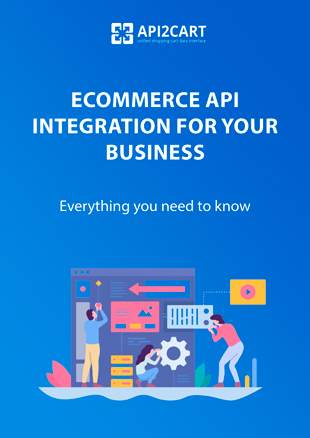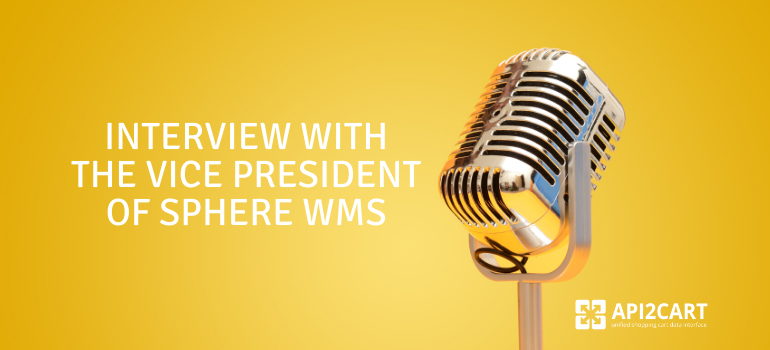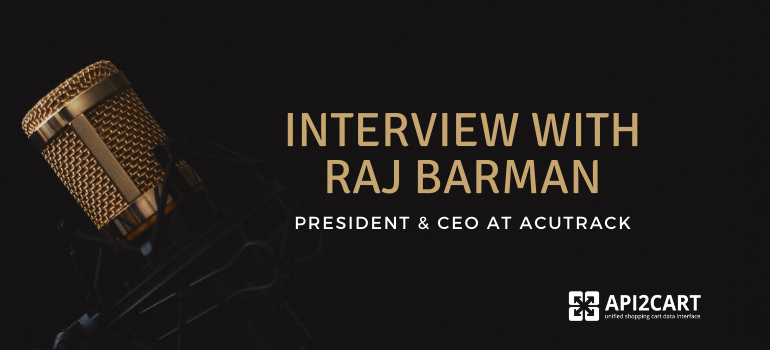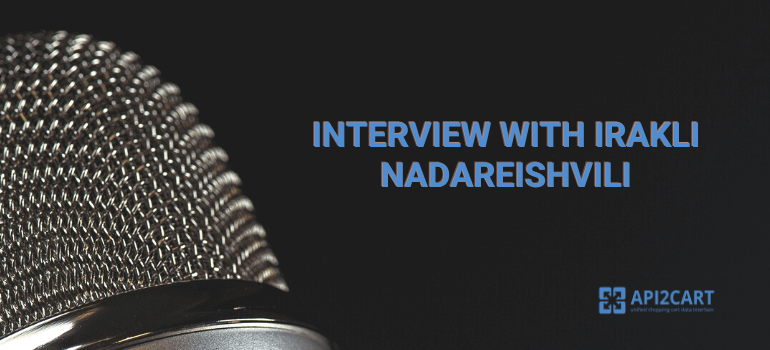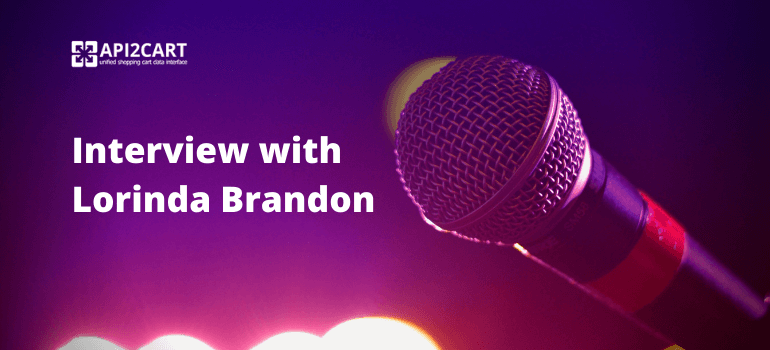
Today we are proud to present to you an interview with Lorinda Brandon, a beautiful woman in tech and an expert on API Business Strategies. She shared with us her experience, a point of view on the role of APIs for eCommerce businesses and her thoughts concerning API evolution for the next 10 years
It was very exciting to get this interview with Lorinda, and we hope that her answers will be really interesting and instructive for you.
Lorinda, how come you decided to enter the wonderful world of technology? When did you realize you would love to build your career in the field of IT?
I have to admit honestly that I stumbled into the technology world rather than making a conscious decision. I was an Art History major and, jobs being scarce in that field during the Reagan era, I started working as a production manager for the Air Force soon after college in the early 80’s. Back then, we tracked aircraft modifications with pen and paper - no automation, no computers, no databases. When the Air Force kicked off a program to develop software and systems to track these projects and tail number history on mainframes, I raised my hand to be part of it. I wrote about my experiences here, if you’re interested. 🙂
https://blog.smartbear.com/database/the-air-forces-1-billion-software-flop-part-1/
You can boast of both an impressive job history and impeccable management, strategy, and technology skills. To acquire those, you have passed a winding career path by working in many different companies and occupying various job positions. What experience was particularly memorable for you? Any interesting or funny stories you would not mind sharing with us?
I tend to bounce around between start-ups and enterprise (there are things I love about both so either one makes me miss the other). There was a group of us from one big company that sort of traveled around together, bringing each other along when one of us moved. At one point, we had a little start-up with 7 or 8 of us building a web platform. We had a location that was really just a mostly unfurnished warehouse. We basically brought in tables from our basements to sit at, and somebody brought in an old phone so we’d have a company phone. Because we all knew each other and had been working together for years, we didn’t actually bother going into the “office” except once a week on Wednesdays. We communicated via phone, ICQ, email and held all our meetings on Wednesday. We also made Wednesday pizza day because there was a pizza place next door.
At one point, a big company decided they were interested in buying us so they scheduled a trip to come see us. We were in a panic! We barely had an office! We made some quick runs to Staples to buy whiteboards and office supplies. We brought in pictures from home so it looked like we had actual workspaces. We cleaned the bathroom and neatened all the cables hanging from the ceiling. We rented a conference table and chairs and set it up so it looked like we had an actual meeting space.
In the end, the company did buy us and moved us to a beautiful office near Boston - they even instituted a catered lunch for us every Wednesday to keep with our tradition. We became the East Coast location and went from 8 to several hundred eventually. After I had been gone for a few years, I went back for a visit - it happened to be a Wednesday and I had to chuckle when I saw everyone lined up for their catered lunch. Little did they know that the origins came from those Wednesday pizza runs in our unadorned warehouse.
You have participated in such well-known conferences as API Strategy, Gluecon, Defrag, APIdays, etc. Do you remember your first API event speaking experience? What was the hardest part about it?
I remember it well. It was at the first API Strategy conference in New York and I was part of the ‘overflow’ speakers. They had so many good talks submitted that they set up an overflow room (Room 429), where we could all get up and do our talks to a casual gathering. There weren’t many people in there - I think I had 5 people in the audience. The hardest part is actually getting up there and start talking. Once I got started, it was fine (isn’t that true of just about everything?). But taking that first breath and looking at the audience for the first time… that’s when it was hardest. It was a nice way to break in, though, because there were so few people. When I did my first keynote, which was at Defrag later that year… that was really unnerving. I knew I would be terrified so I practiced the talk until I had the whole thing memorized, with the hope that my nerves wouldn’t erase all my brain cells.
I rarely get nervous anymore and I would encourage everyone who thinks they have something interesting to say to get up there and speak. I find that API audiences are welcoming, smart, courteous and interested.
When did you get acquainted with Application Programming Interfaces? Now that you know much more about them, how would you explain what an API is to a person who has no technical background?
Oh I’ve been working in the web application space since the early 1990’s so I’ve been working with APIs for more than 20 years. I’ve seen them evolve in a major way over that time but exponentially in the last few years.
When it comes to explaining APIs, well, they’re analogy rich! 🙂 I’ve used glue and Legos and wiring. But I think the one that is easiest for people outside of software to understand is telecommunications. There are lots of ways to call someone - you can use a phone number with the country code in it, you can use 10-digit dialing with the area code, you can use 7-digit dialing without an area code, you can use a #code, you can speed dial…. but in the end, what you’re trying to do is get connected to another entity so you can communicate. Maybe you want to tell them something or maybe you want them to tell you something. But it’s all about communication and how you make that connection. APIs are along the same lines - essentially, they are the way software programs call each other to communicate. And those calls can be initiated in a variety of ways just like our telephone calls can be dialed in a variety of ways.
You have been in business for a long while, and you’ve worked with APIs inside of it. How would you define the importance of APIs for business and eCommerce in particular? Do you consider APIs a driving force for e-retail businesses?
Yikes! That’s a big answer. Let’s see… where to start? First, APIs make it incredibly easy to absorb various payment options on your eCommerce site as well as popping in a map to your business, reviews from other apps, and shipping services. But flip that on its head and they also enable you to be incorporated into other applications/sites/services by making an API available to access your inventory or store listing. The possibilities are endless, from mobile to web to IoT (ask Alexa to buy you some new socks, like Alec Baldwin does).
It’s an investment to build, maintain and promote an API for your retail business but the payback can be enormous if you do it right. You expand your online reach in ways you could never afford to do using your own staff and money. Enabling digital partnerships is an incredible business enabler, and APIs open those doors.
And the last question. Could you share with us your thoughts concerning API evolution for the next 10 years?
I think we’re all starting to look beyond HTTP, beyond REST, and into what consumers really want/need from us. We’re seeing a proliferation of protocols coming back into vogue with the boom of the Internet of Things and it’s shining a light on some old technology that has been lurking out there, being incredibly useful in its own way. Crusty old soldiers like MQTT are now becoming the sexy new thing but we have a whole new generation of people looking at this technology, ready to move it forward.
Additionally, hypermedia is rising in popularity and I think we’ll see people start to build tooling that drives even more adoption of that approach.
We want to thank Lorinda Brandon for finding time to share her memories, experience, thoughts and wish her all the best in the future.
